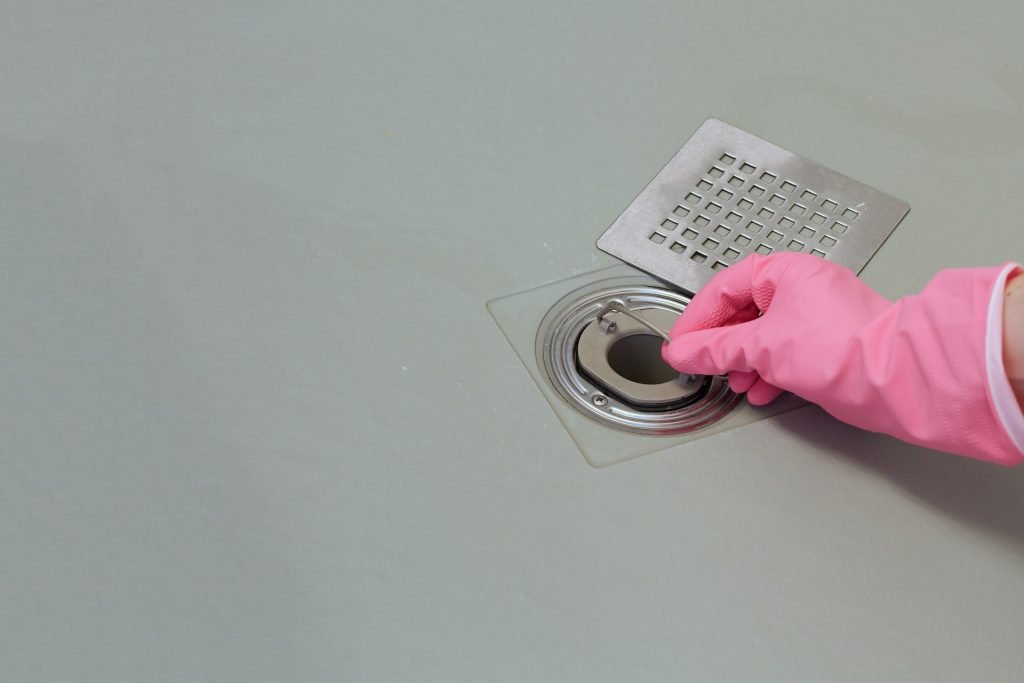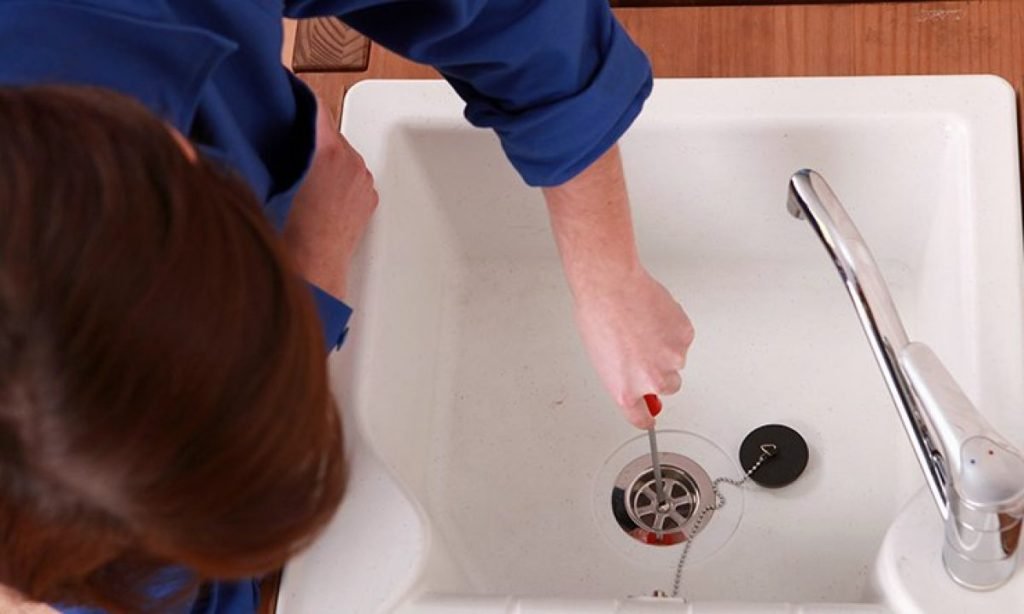Drain odors can be an unexpected nuisance in any home, bringing unpleasant smells and signaling potential plumbing issues. Whether from a kitchen sink, bathroom drain, or laundry area, these foul odors can disrupt the comfort of your space. Various factors, including food particles, trapped debris, and even structural plumbing issues, contribute to these unwanted smells. Understanding what causes drain odors and the steps you can take to fix them is essential for every homeowner. In this guide, The Pro Plumbing explore common causes of drain odors, easy DIY solutions, and when it’s time to call in professional help.
Trapped Hair and Soap Scum in Bathroom Drains
Bathroom drains are frequently clogged with hair, soap scum, and other residues that trap odors. When combined with the moist environment, these materials provide an ideal breeding ground for bacteria, leading to foul smells.
To address this, remove visible hair and soap scum regularly from the drain. Pouring hot water down the drain helps dissolve minor clogs. Adding baking soda followed by vinegar creates a foaming action that breaks down organic matter and bacteria. Installing a drain hair catcher also helps prevent these odors from reoccurring by stopping hair from accumulating in the drain.
Mold and Mildew Growth in Drains
Mold and mildew thrive in moist, dark environments like drains, releasing musty smells and even contributing to health issues. This growth is often due to a lack of ventilation or an unseen leak within the pipe system.
Clean the drain thoroughly with a mix of bleach and water to kill mold and mildew spores. Ensure good ventilation in areas with high humidity and consider using a dehumidifier if necessary. If the issue persists, you may need to check for hidden leaks or call a plumber to inspect and address any structural issues that contribute to mold growth.
Biofilm Buildup Inside the Pipes

Biofilm is a sticky, bacteria-laden substance that can form inside pipes over time, giving off a strong odor as it grows. It often results from organic material, like food and soap particles, coating the inside of drain pipes.
To get rid of biofilm, scrub the inside of your drain with a long, flexible brush. Afterward, flush the drain with hot water and a disinfecting solution, such as a mix of vinegar and baking soda. Using an enzymatic drain cleaner monthly can help keep biofilm from forming again and prevent odors from returning.
Clogs Due to Foreign Objects in the Drain
Sometimes, foreign objects like small toys, bottle caps, or even excessive amounts of hair can accidentally fall into the drain, creating a clog. These objects obstruct the flow of water, causing odors as water stagnates around the blockage.
To fix this, use a plumber’s snake to remove the clog or try a wet/dry vacuum to pull out the object. If you can’t reach the clog, avoid using chemicals that could damage your pipes. Instead, contact a professional plumber to safely remove the foreign object and restore normal drainage.
Improper Venting of Drain Pipes
Proper venting in plumbing is essential to prevent the buildup of gases within pipes. When a drain is not properly vented, it can lead to negative air pressure, causing water to drain slowly and sewer gases to escape into the home.
To fix venting issues, have a plumber inspect your vent stack and confirm it’s unobstructed. In some cases, adding an air admittance valve can improve drainage without the need for extensive remodeling. Professional drain cleaning intervention is needed, keeping a regular cleaning routine and monitoring for clogs will help prevent future issues.
Rotting Organic Matter in Outdoor Drains

Outdoor drains can collect leaves, dirt, and other organic debris that rot and emit foul odors. This problem often arises in downspouts, gutters, or driveway drains where fallen leaves and debris accumulate.
Regularly clean out outdoor drains, particularly during fall and after storms. Use a hose to flush debris away, and consider installing a mesh cover over your drain to keep leaves and dirt from entering. For persistent odor, a mix of vinegar and baking soda can help neutralize smells in outdoor drains as well.
Accumulated Food Particles and Grease Buildup in Kitchen Drains
Kitchen drains can easily become clogged due to food particles, oils, and grease that accumulate over time. These remnants often stick to the inner walls of pipes, creating a sticky buildup that not only blocks the drain but also emits unpleasant odors. As food particles decompose, they release foul-smelling gases, which flow up through the sink, especially after using hot water.
To remove grease buildup, pour a mixture of hot water and dish soap down the drain weekly. For tougher clogs, try a baking soda and vinegar mix, which reacts to dislodge stubborn residue. In severe cases, a plumber’s snake can reach deep clogs, restoring flow and odor-free drainage.
Dry P-Traps and Sewer Gas Backflow
The P-trap—a U-shaped pipe beneath sinks and drains—traps water to block sewer gases from entering your home. However, if the trap dries out, sewer gases can escape, causing foul odors that are difficult to ignore. This issue commonly arises in unused drains, such as those in basements or guest bathrooms.
To solve this, run water down the affected drain regularly to refill the P-trap. If you find that certain drains are used infrequently, consider adding a trap primer to maintain water levels automatically. In case the odor persists, a professional inspection may be needed to ensure there’s no structural issue causing the P-trap to lose water faster than normal.
FAQs
Q1: Why does my sink smell like rotten eggs?
- The “rotten egg” smell is often due to hydrogen sulfide gas, a byproduct of bacteria breaking down organic matter in your drain. Buildups of food, grease, or hair provide the ideal environment for bacteria growth. Regular cleaning with a baking soda and vinegar solution or an enzyme cleaner can help remove this smell.
Q2: Are chemical drain cleaners safe for clearing odors?
- While chemical drain cleaners can sometimes help with minor clogs, they aren’t always effective at neutralizing odors and can damage your pipes over time. Natural options, such as baking soda and vinegar, or enzyme-based cleaners, are safer for both your pipes and the environment.
Q3: How often should I clean my drains to prevent odors?
- For odor prevention, it’s recommended to clean your drains once a month. Using hot water with dish soap weekly helps reduce grease buildup, while a baking soda and vinegar rinse can dissolve organic materials and deter bacterial growth.
Q4: When should I call a professional plumber for drain odors?
- If DIY methods aren’t eliminating the smell, it may indicate a deeper issue, such as a blocked vent or a damaged sewer line. Persistent odors, slow drainage, or gurgling sounds are signs that it’s time to call a professional plumber for a thorough inspection.
Conclusion
Drain odors are more than just a minor inconvenience—they can signal deeper plumbing issues that need attention. By identifying and addressing the causes, such as grease buildup, dry P-traps, and improper venting, you can keep your drains odor-free and functioning well. Whether a quick DIY solution or professional cleaning intervention is needed, keeping a regular cleaning routine and monitoring for clogs will help prevent future issues. In some cases, reaching out to a plumber is the best way to ensure your plumbing system remains clean and odor-free. With these tips, you can reclaim a fresh-smelling, comfortable home.

